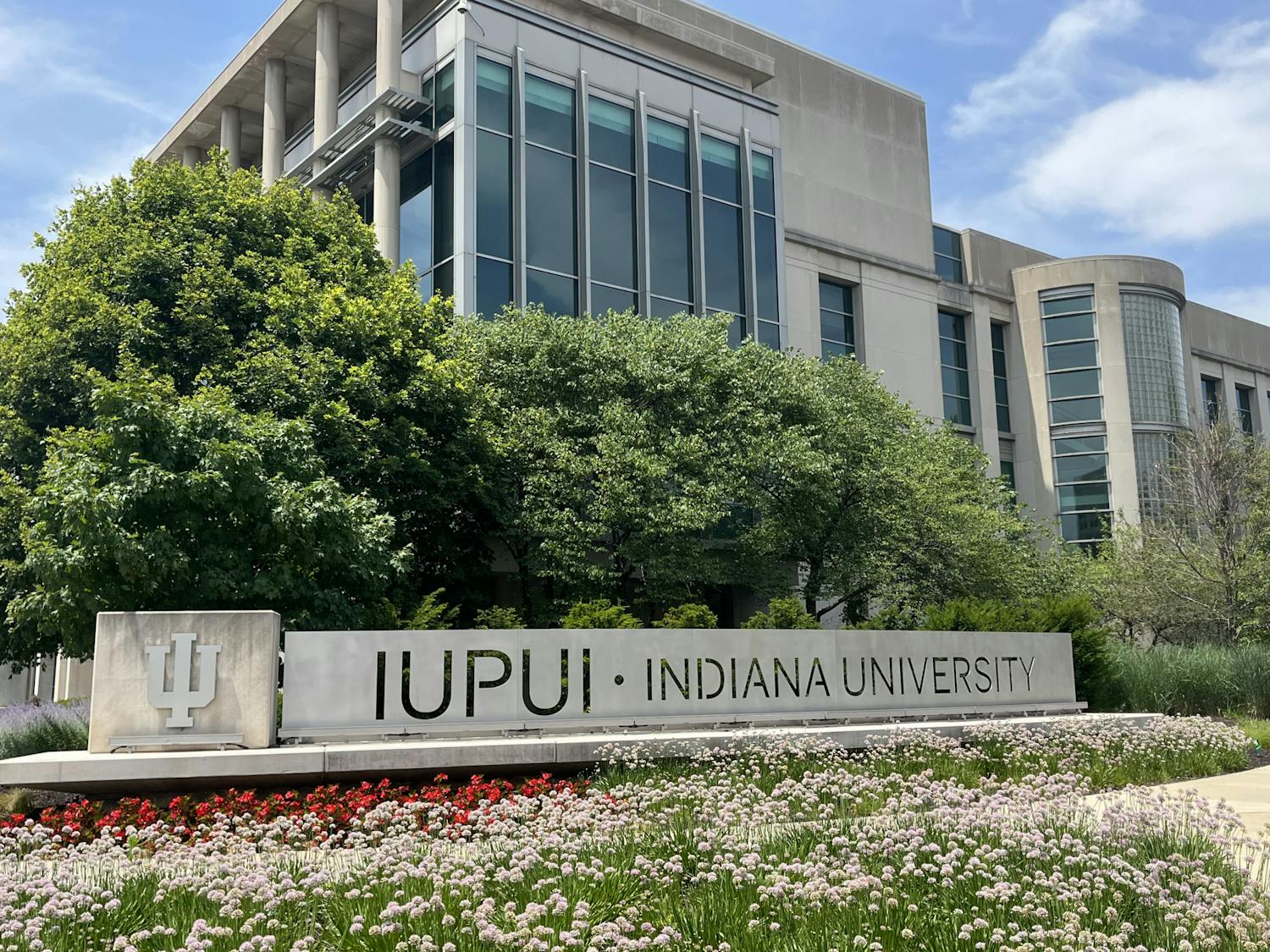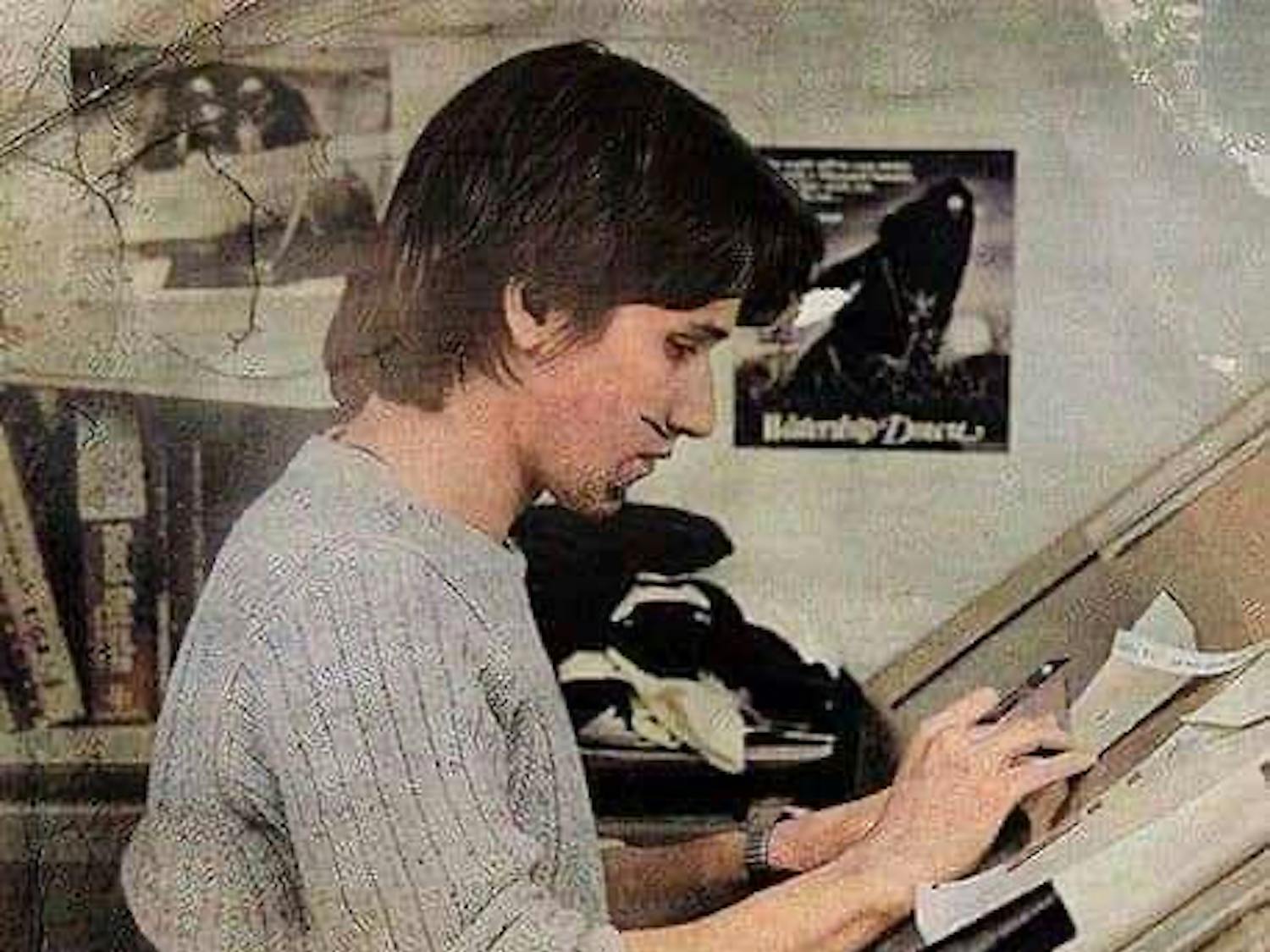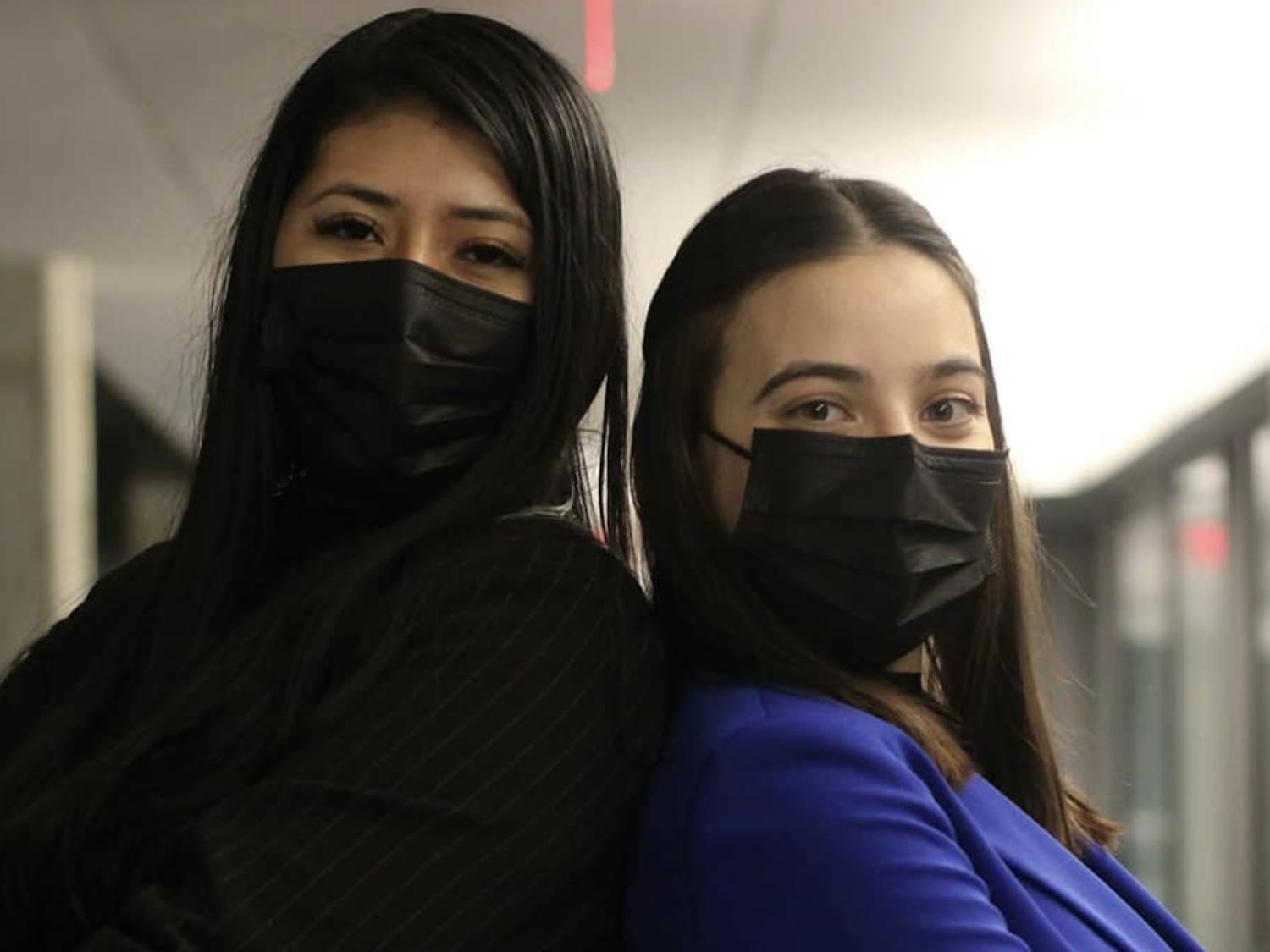It's time to go Labhopping! Join Jacob Stewart and Laura Cross as they sit down with Dr. Susan Walsh as they discuss how she first became fascinated with science, her career and her DNA/Phenotype Lab.
There is nothing like a fire drill on a rainy day to bring two people together. As I was setting up for an interview with Dr. Susan Walsh, an associate professor here at IUPUI, a lab somewhere in the science building triggered the fire alarm and caused the entire complex to evacuate. That sent Dr. Walsh and I down three stories and into the cold, rainy weather outside, as firefighters came to check out the scene. In the meantime, we got the chance to just talk, like two people, without a camera. The topics ranged from her education all across Europe and her career to how she met her husband while he was stationed on a Navy base in the Netherlands. It was a good opportunity to get to know Dr. Walsh not just as a researcher, but as a person.
Eventually, we were able to go back inside and get the interview recorded, which is also on the Campus Citizen website. One question that I asked her that stuck out to me, near the end, which did not make the cut for the video, was “Do you have any advice for students considering graduate studies?” And to put it shortly, she gave a notable answer drawing from her own experiences. In essence, she said do not rush into these things. A lot of students think they have to go straight from school to school to a job, but according to Dr. Walsh, this is not the case. She recommends traveling the world, figuring out who you are and what you enjoy. Life almost never goes the way we plan, so let life (and a little luck) lead you to a fulfilling career.
In addition to Dr. Walsh, we were able to interview three other members of her lab, Kyra Mullins, an undergraduate researcher and biology major, as well as two Ph.D. students, Frankie Wilkie and Noah Herrick. While they gave us a tour of the lab and scanned our faces with their 3D camera, we asked them a few questions.
Laura Cross: “So what is an everyday scenario like for you here at the lab, Frankie?”
Frankie Wilkie: “Most of it is just computer work. I analyze the 3D scans of faces for differences in European ancestry, so like North/South/East/West ancestries show differences in facial features, so usually in Matlab [a computer application used for collecting laboratory data] I’m doing data analysis or statistics. At the moment I’m writing up a critical review of the literature for my first [Ph.D.] exam. . .”
Laura Cross: “How many hours do you usually spend a day in the lab?”
Frankie Wilkie: “Nine to five every day. Except when we have classes... I’m the only one [in the lab] who doesn’t have to T.A. [teacher assist] so I get more time (laughs).”
Laura Cross: “So do you really like your position, then?”
Frankie Wilkie: “I do, I’m from Germany, so I came here because they really don’t have forensics in Germany... and Ph.D. programs are extremely difficult to find funding for.”
Laura Cross: “Yes! It’s very rare even in the U.S, Indiana is one of the few states that has a forensics program.”
Frankie Wilkie: “Yeah, I applied pretty much everywhere in Europe, and one professor didn’t have a position open, but he forwarded me here and was like ‘do you want to move to America?’ and I was like ‘Hell yes!’”
Laura Cross: “(laughs) That’s awesome! So Kyra, what do you do on a daily basis in the lab?”
Kyra Mullins: “I’m primarily on a dry lab basis, so Noah is my mentor, and we’re working with the data side of things, like analyzing and building dual pipelines on my end... which take the raw data and put it into a usable format.”
Laura Cross: “So how long do you usually work each day?”
Kyra Mullins: “I have no set amount. But the good part about dry lab is that it is really flexible if you have a computer – I’m doing most of my stuff on Chromebook! (laughs) So you can take it with you most places...”
Laura Cross: “What made you come here to the Walsh Lab?”
Kyra Mullins: “Kind of accidental, but a great accident! Last semester Noah was a teacher’s assistant for a cell biology lab that my friend was in, and I mentioned to her that I like computers. And she mentioned to Noah, ‘hey, I have a friend that likes biology and computers!’”
Laura Cross: “So then, Noah, what do you do on a daily basis in the lab?”
Noah Herrick: “I am a bioinformatics scientist, so I analyze genomic data, whether its whole genomic sequence, or genotyping array data, and we take that to try and help identify people.
Laura Cross: “Like with case studies and missing persons, right?”
Noah Herrick: “Absolutely! We use it for forensics applications, novel discovery for phenotypic traits, clinical settings, etc.”
Laura Cross: “How long do you usually spend in the lab each day?”
Noah Herrick: “About eight to ten hours. And a lot of work outside of the lab too, on computers, so you can work from home.”
Laura Cross: “Definitely a big commitment. So what made you come to the Walsh Lab?”
Noah Herrick: “Well, I actually joined when I was an undergraduate student as a junior volunteer, then I did my senior capstone research in the lab. And I stayed on for a master’s project and she [Dr. Walsh] convinced me to switch to a Ph.D. (laughs)”
Dr. Walsh’s research might be the coolest thing since sliced bread to you, or it may not be your thing. Either way, there are plenty of opportunities to get involved on campus. No matter your major, there is something here for you. If science is your thing, there are plenty of labs on campus waiting to be explored, many of which are in need of undergraduate volunteers.
If volunteering is something you would be interested in, contact me at stewar1@iu.edu and I can try to help you through that process.
COLUMN: Labhopping with Dr. Susan Walsh
Heads up! This article was imported from a previous version of The Campus Citizen. If you notice any issues, please let us know.




